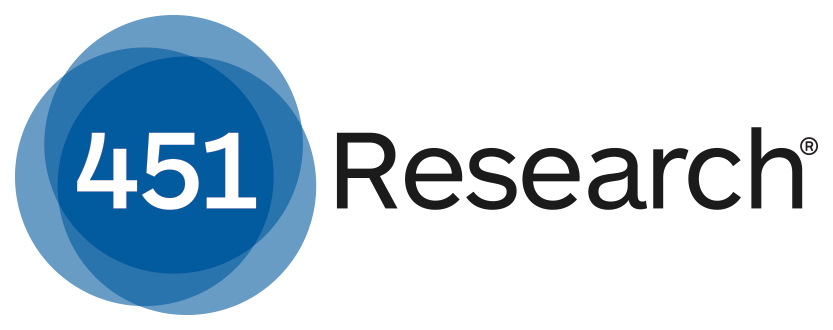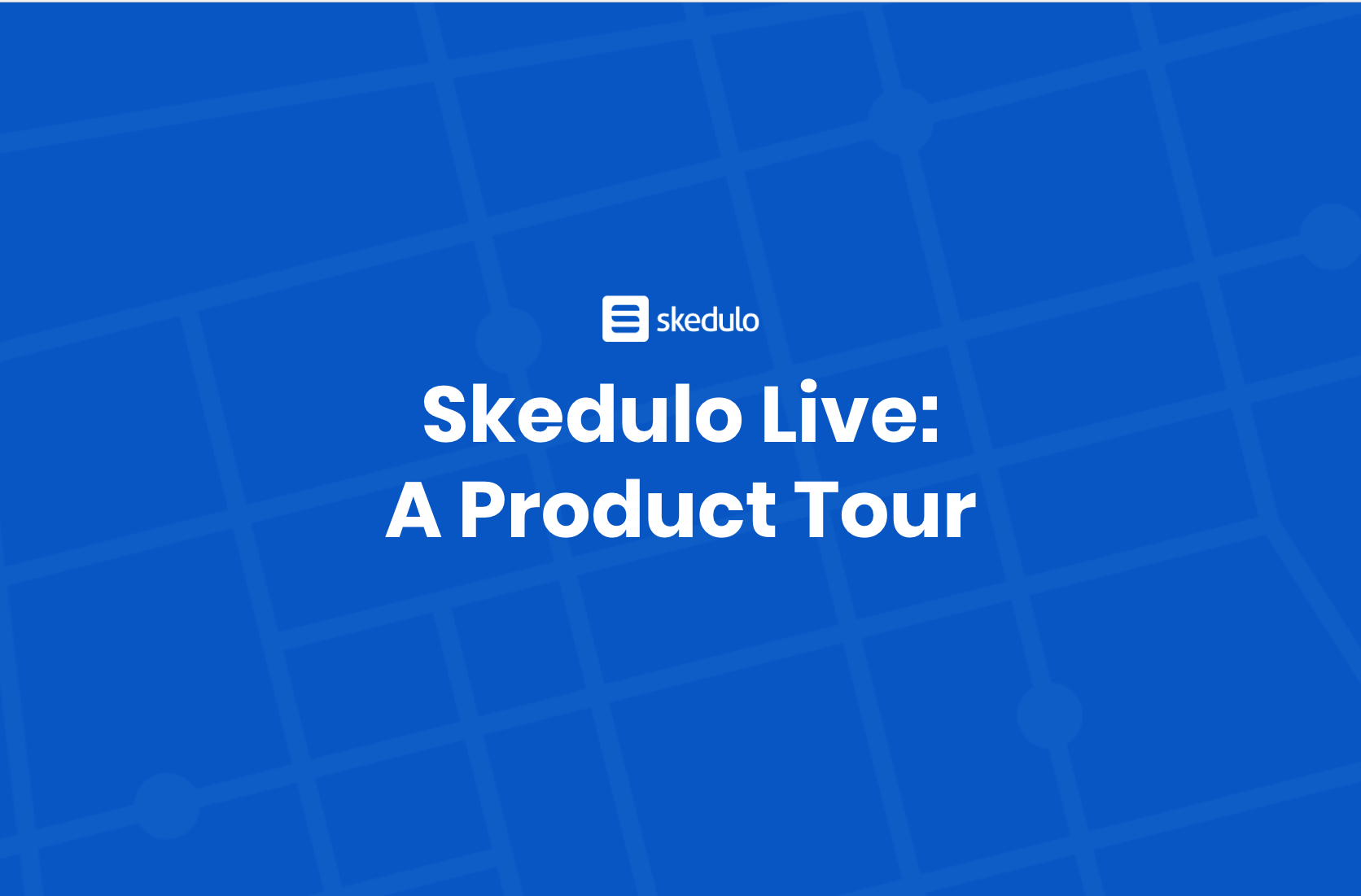Analysts – Raul Castanon-Martinez, Conner Forrest
Publication date: Wednesday, April 1 2020
Introduction
Skedulo has announced the release of The Deskless Productivity Cloud, a purpose-built offering that enables organizations to manage, engage and analyze their deskless workforce, whether they are mobile in the field or in facilities and fixed locations. The release builds on Skedulo’s initial focus on optimizing mobile workers to expand to the broader deskless workforce.
The 451 Take
Deskless workers – including those who deal directly with customers or are closely involved in the service delivery process – have typically been underserved by IT and business communications. This is beginning to change. Our research shows that organizations are rethinking the role these workers play within the context of organizational culture and business agility. The Deskless Productivity Cloud aligns with these trends, building and expanding on Skedulo’s trajectory and initial focus on optimizing mobile worker productivity to encompass the broader deskless workforce, whether they are mobile or in a fixed location. Skedulo will face intense competition from a wider range of vendors, but the company is well-placed to drive further growth with a differentiated, mobile-first offering focusing on capabilities that can have a significant impact on productivity and customer service.
Context
Skedulo was founded in 2013 and is headquartered in San Francisco with offices in Australia, Vietnam and the UK. As a privately held company, it does not publicly disclose its financials; 451 Research estimates its annual revenue to be $15-20m. The company has raised over $40m to date, including its most recent series B round in March 2019, which raised $28m led by Microsoft’s venture fund, M12, with participation from returning investors Blackbird Ventures and Costanoa Ventures.
The company has approximately 175 paying customers primarily in the UK, US, Australia and New Zealand. Its client base includes companies with a large number of field workers such as Sunrun, a US-based provider of home solar and batteries; the American Red Cross, a humanitarian organization that provides emergency assistance, disaster relief and disaster preparedness education in the US; Solace Pediatric Home Healthcare, the largest provider of its kind in Colorado with more than 5,000 patient visits per week and 250 clinicians; and Area Wide Protective, which provides traffic control management services for utility companies, municipalities and special events.
Products
When we initiated our coverage of Skedulo two years ago, the company was positioned as a scheduling and management application provider for the mobile workforce, offering capabilities for workforce management, scheduling and dispatching, field service, and communication and collaboration. It differentiated its platform based on capabilities for optimizing decision-making for organizations dealing with complex mobile workforce management at scale – typically above 100 mobile workers – and flexibility to optimize based on variables such as skill set, certifications and real-time location.
The Deskless Productivity Cloud builds on the Skedulo platform and significantly expands its scope with new capabilities that aim to streamline work and improve deskless workforce productivity. The new features and capabilities in The Deskless Productivity Cloud include:
- Shifts and rosters. Handles complex scheduling and time and attendance requirements for shift and mobile workers by setting up rosters, creating work based on resource requirements and demand, automating work offers and swaps, managing check-ins/checkouts, and integration with payroll and HR systems.
- Analytics. Provides a full suite of reporting and dashboard insights on deskless workforce productivity, utilization and scheduling, connecting disparate data and information and simplifying reporting for administrative and compliance purposes.
- Dynamic messaging. Currently in early preview, it enables real-time, secure communications between deskless workers and schedulers, customers and other resources.
The platform provides integrations to business-critical systems including Salesforce, Zendesk, ServiceNow, Workday, Epic Systems and multiple electronic health record products, including Epic, Point Click Care and Athena, through its partnership with Bridge Connector. The company has also established a partnership with Dell Boomi – an IT service management firm owned by Dell that specializes in cloud-based integration, API management and master data management – to enable customers to tailor Skedulo to fit their existing business workflows.
Strategy
The profile of the Skedulo buyer will undoubtedly expand with the launch of the new platform features. In the past, Skedulo typically sold into operations players (e.g., operations management, customer service for mobile appointments). With the expansion to The Deskless Productivity Cloud, Skedulo will likely target typical workforce management buyers for both field and location-based shift work in HR departments, payroll and administration.
Skedulo will also revisit its licensing structure with the move to a platform model. Historically, the entire product was licensed at a single price point and discounted at volume. With the platform investment and new capabilities, product licensing is expected to include multiple SKUs, allowing customers to license the features as needed. For example, customers may license differently for location-based shift workers than they would for appointment-based field workers. Skedulo unveils new capabilities and launches as a productivity platform for the deskless workforce
Competition
As Skedulo expands its scope, we believe it will overlap with technology vendors across different categories, including workforce management technology such as Kronos, a provider of cloud-based workforce and human capital management services, and ClickSoftware, a field service management platform supplier that offers schedule optimization, workforce mobility and demand-forecasting tools. Other competing products include ServiceMax, which provides cloud-based field service management tools for technicians, managers and executives, and Workforce Management products from SAP and Oracle.
When considering the potential for Skedulo to be used for communication and engagement across a broader distributed workforce, we could see StaffConnect being competitive as well.
SWOT Analysis
| Strengths | Weaknesses |
|---|---|
| The Deskless Productivity Cloud is a logical move that builds on Skedulo’s mission and enhances its differentiation, complementing and expanding its initial focus on optimizing mobile workers. Its focus on delivering capabilities that can have a significant impact on deskless workforce productivity is a key source of strength and differentiation for Skedulo. | The addition of traditional workforce management scheduling and time-tracking tools makes sense for Skedulo, but the features seem basic compared to the industry stalwarts it will be competing with. We expect the company to leverage partnerships and integrations to fill in those gaps. |
| Opportunities | Threats |
| Deskless workers have typically been underserved by IT and business communications and represent an important opportunity. 451 Research expects these workers will increasingly be a critical focus for digital transformation initiatives. We also see key opportunities for growth in the Skedulo partner and integration ecosystem, including with other deskless-first workforce tools such as talentReef. | While it provides a differentiated product, vendors in other categories with a dominant mindshare (i.e., Microsoft, Facebook) are also targeting deskless workers and could overshadow its efforts. |



